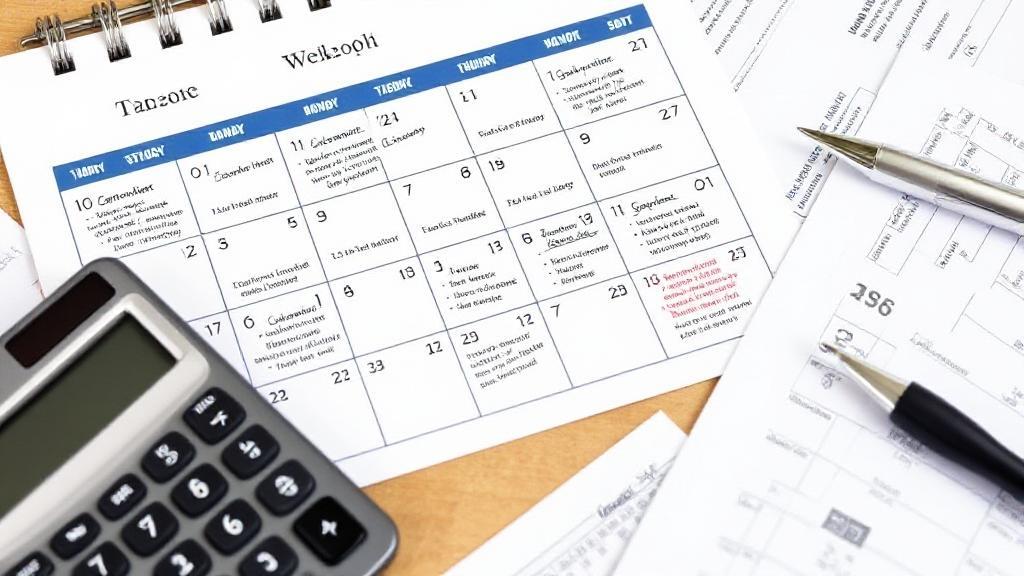Federal Tax Deadlines
Individual Income Tax Returns
- April 15: Standard deadline for filing Form 1040 (federal income tax return). If this falls on a weekend or holiday, the deadline extends to the next business day.
- October 15: Extended deadline if you file Form 4868. Remember that an extension to file is not an extension to pay.
Quarterly Estimated Tax Payments
For self-employed individuals and those with significant non-wage income:
- Q1 (January-March): April 15
- Q2 (April-June): June 15
- Q3 (July-September): September 15
- Q4 (October-December): January 15 of the following year
Note: If any of these dates fall on a weekend or holiday, the deadline shifts to the next business day.
Business Tax Deadlines
| Business Type | Due Date |
|---|---|
| S-Corporations | March 15 |
| Partnerships | March 15 |
| C-Corporations | April 15 |
| Non-profits | May 15 |
Employment Tax Due Dates
-
Form 941 (Quarterly Employment Tax Returns):
- Q1: April 30
- Q2: July 31
- Q3: October 31
- Q4: January 31
-
January 31: Deadline for employers to send W-2 forms to employees and 1099 forms to independent contractors
Special Circumstances
Several situations may affect your tax deadline:
- Natural disaster victims may receive extended deadlines
- Military personnel serving in combat zones get automatic extensions
- U.S. citizens and resident aliens living abroad receive an automatic two-month extension (June 15)
- Residents of Maine and Massachusetts may have different deadlines due to state holidays
State Tax Deadlines
Most states align their tax deadlines with federal dates, but there are exceptions. Check your state's Department of Revenue website for specific dates. You can find a comprehensive list of state tax agencies on the IRS website.
Late Payment Penalties
Failing to meet tax deadlines can result in:
- Failure-to-file penalty: 5% of unpaid taxes per month
- Failure-to-pay penalty: 0.5% of unpaid taxes per month
- Interest charges on unpaid taxes
Tips for Staying on Track
- Set calendar reminders for relevant deadlines
- Maintain organized records throughout the year
- Consider using tax preparation software or working with a professional
- Set aside funds regularly if you need to make estimated payments
- Keep all tax-related documents in a dedicated folder
- Consult a tax professional if unsure about requirements
For more detailed information about tax deadlines and penalties, visit the IRS Tax Calendar for Businesses and Self-Employed or the IRS official website.
